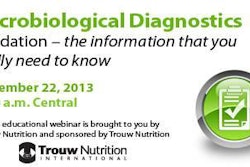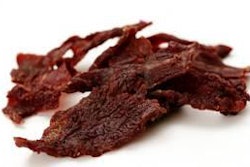On October 22, the US Food and Drug Administration (FDA) issued an update on its investigation into pet illnesses associated with pet jerky treats from China, along with a request to veterinarians for their assistance in identifying pets that were potentially sickened as a result of consuming the tainted pet treats. Tim Evans, an associate professor of veterinary pathobiology at the University of Missouri College of Veterinary Medicine and a veterinary toxicologist, says that while pet owners should be aware of this issue and watchful for signs of illness in pets that have been consuming these treats on a regular basis, it is not a cause for alarm for the majority of dogs and cats.
According to Evans: "While the loss of any pet is tragic, only a very small percentage of pets has been affected by this strange illness during the past six years.
"If pet owners have been feeding their dogs or cats jerky treats containing chicken, duck, sweet potatoes and/or dried fruits, I would recommend they stop feeding the animals the treats immediately and monitor their pets' health. While there may not be a cause for immediate alarm, owners of small-breed dogs that have consumed these treats on a regular basis, especially those with pre-existing health conditions, might want to have their pet examined by their regular veterinarian and have some laboratory testing performed. If an owner's pet should begin to show signs of illness, such as decreased appetite, lethargy, vomiting, diarrhea, and/or increased water consumption and urination, owners should immediately bring their pets in for evaluation by a veterinarian, because the sooner this illness is detected, the better the chances that it can be treated effectively."
Evans says the primary illness stemming from these tainted treats involves kidney disease and failure if the illness progresses without treatment. Evans believes that while this issue has been occurring since 2007, it does not mean FDA has been negligent.
"The FDA and scientists around the country have been working on this problem tirelessly for many years, but it has been a very difficult process because no obvious ingredients in the jerky treats have been found to cause this illness," Evans said. "Hopefully with this latest call for help from veterinarians nationwide, the FDA will collect enough information soon to determine why this illness is occurring."
Because jerky treats are not a part of an essential diet for any pet, Evans recommends that pet owners refrain from feeding them to their pets if they are concerned about this illness. He also recommends regular annual checkups for pets, including baseline blood work as the animals get older. He says this will help veterinarians catch any potential health issues before they escalate into more serious problems.
















